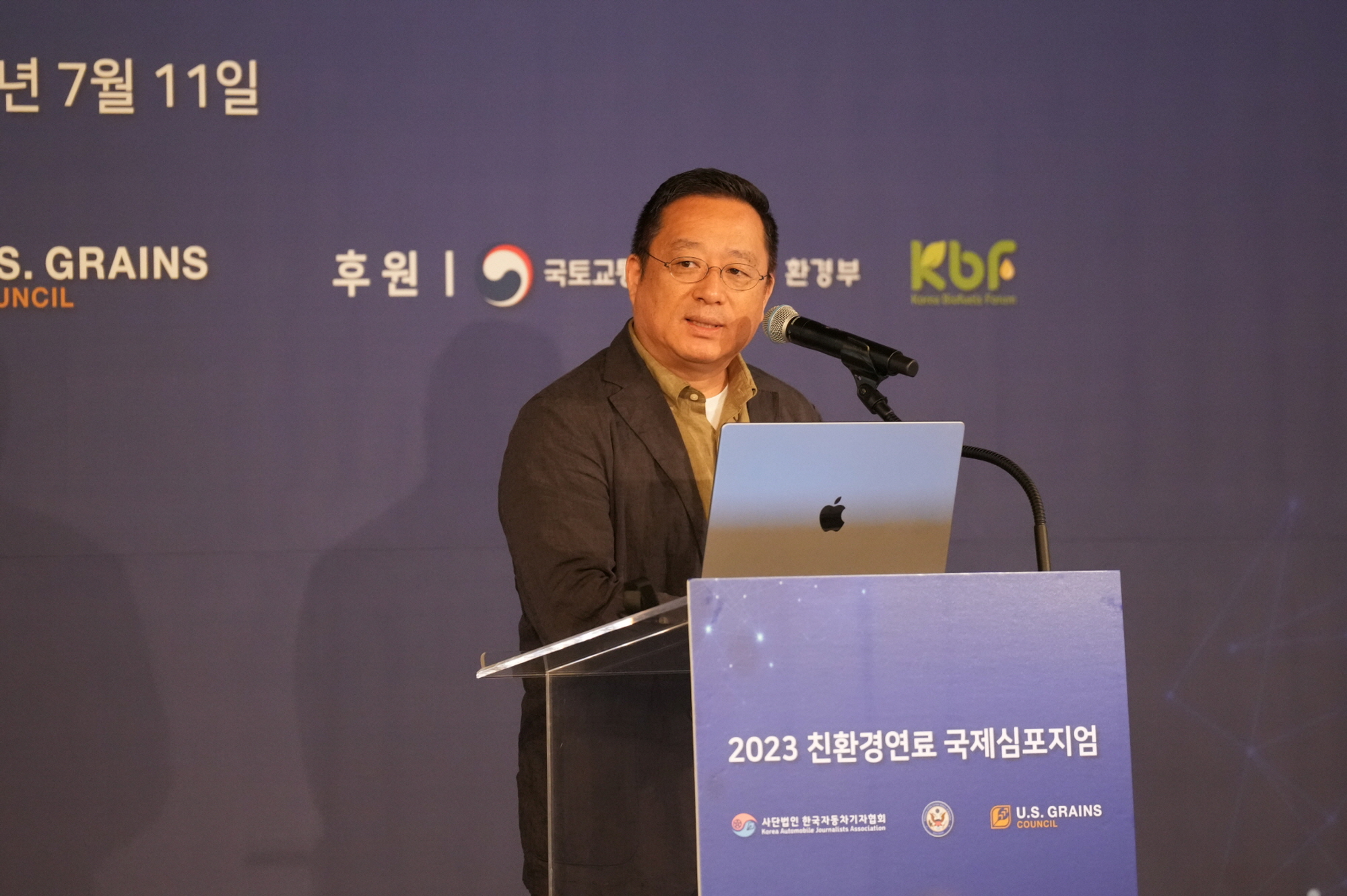
As electric vehicles increase, carbon dioxide emissions also rise. This is because the electricity supplied to these vehicles is largely generated from thermal power plants. This paradox is particularly evident in South Korea, where the thermal power generation accounts for 64% of the energy mix.
To compensate for this paradox of electric vehicles, there is a call to focus on biofuels. Professor Sang Byeong-in of Hanyang University stated that biofuels can reduce carbon emissions while still using existing internal combustion engines, which would benefit society by eliminating the need for new charging facilities.
The Korea Automobile Journalists Association and the American Grain Association held a symposium on the role of eco-friendly fuels to achieve carbon neutrality by 2050 on the 11th at the Four Seasons Hotel in Gwanghwamun, Seoul.
In a presentation titled ‘Current Status and Prospects of E-Fuel Technology’, Professor Sang Byeong-in from the Department of Chemical Engineering at Hanyang University noted, “Last year, the Tesla Model Y ranked third among the top 10 selling cars worldwide, with 747,500 units sold, and the Model 3 ranked tenth with 482,200 units sold,” adding, “The era of electric vehicles is rapidly approaching.” Last year, global electric vehicle sales surpassed 10 million units and are expected to exceed 14 million this year.
However, as the sales of electric vehicles increase, costs arise from the need to expand charging infrastructure, and resources are continuously mined for battery production. The production of a single electric vehicle leads to environmental destruction from the mining of raw materials for batteries.
Professor Sang emphasized, “While the production and supply of electric vehicles is increasing, their eco-friendliness cannot be guaranteed. It is critical to consider where the electricity is sourced from.” He pointed out that since 64% of South Korea’s power plants rely on thermal power, the rise in electric vehicle sales results in increased carbon dioxide emissions, contradicting carbon neutrality policies.
In this context, Professor Sang explained renewable energy in the form of biofuels. A representative type of biofuel is bioethanol, which is refined by mixing ethanol with existing internal combustion engines. Using this bioethanol can reduce carbon dioxide emissions from standard internal combustion engine models. Many major countries, including the USA and Brazil, already use fuel blended with this ethanol.
“The electric vehicle charging infrastructure requires an investment of 7.5 trillion won, while the biofuel infrastructure can utilize the existing fueling stations, amounting to only 5.5 trillion won,” Professor Sang stated. “This allows for a remarkable cost savings of 27% compared to the electric vehicle charging infrastructure, enabling the continued use of existing cars without the need for replacement.”
As a result, despite the European Union’s plans to ban the sale of internal combustion engine vehicles after 2035, there are movements in Germany to allow the sale of E-fuel vehicles.
Biofuel research is also underway in South Korea. There are plans to produce methane using carbon dioxide for application in CNG vehicles, along with research analyzing ethanol produced from methanol for use in gasoline vehicles.
By Sang Jin
